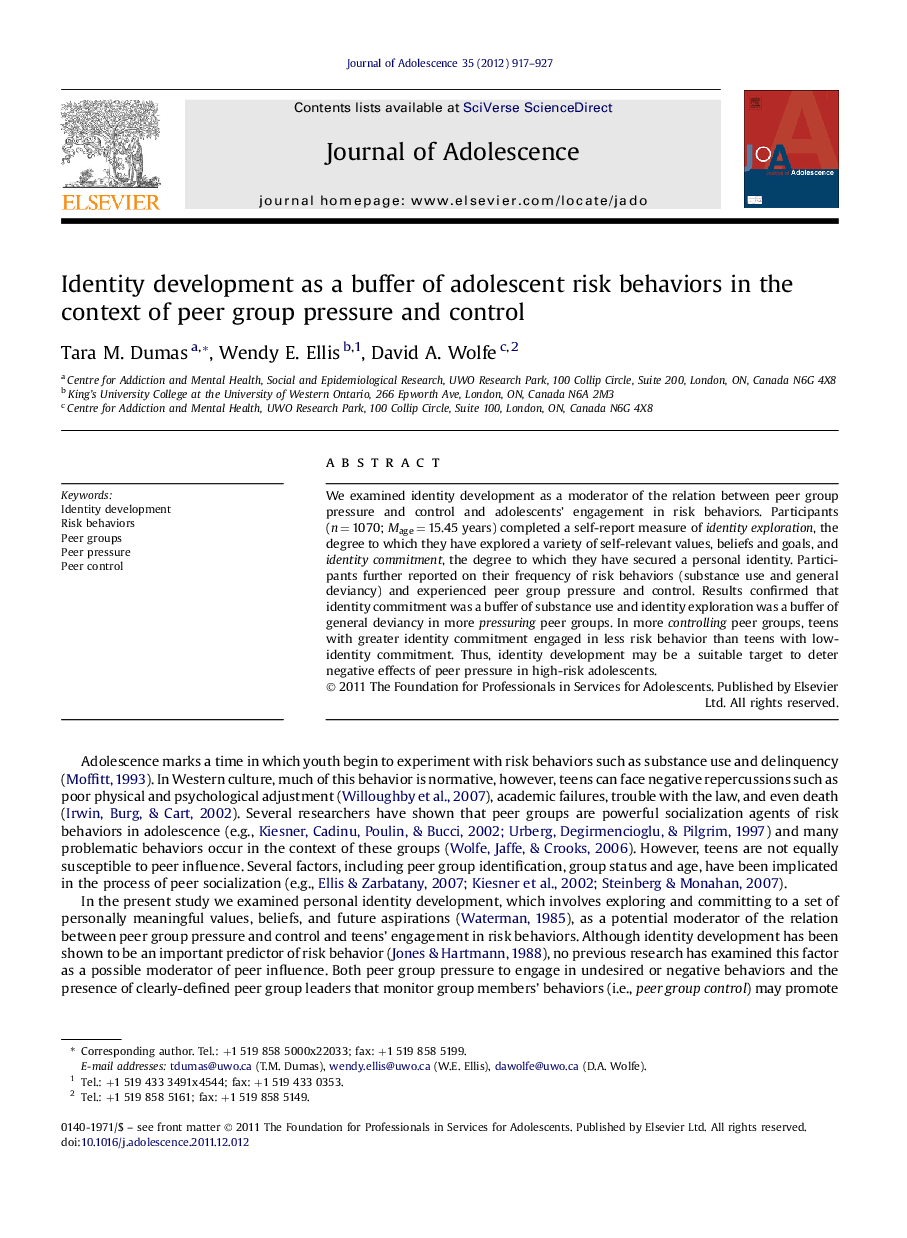| Article ID | Journal | Published Year | Pages | File Type |
|---|---|---|---|---|
| 881184 | Journal of Adolescence | 2012 | 11 Pages |
We examined identity development as a moderator of the relation between peer group pressure and control and adolescents’ engagement in risk behaviors. Participants (n = 1070; Mage = 15.45 years) completed a self-report measure of identity exploration, the degree to which they have explored a variety of self-relevant values, beliefs and goals, and identity commitment, the degree to which they have secured a personal identity. Participants further reported on their frequency of risk behaviors (substance use and general deviancy) and experienced peer group pressure and control. Results confirmed that identity commitment was a buffer of substance use and identity exploration was a buffer of general deviancy in more pressuring peer groups. In more controlling peer groups, teens with greater identity commitment engaged in less risk behavior than teens with low-identity commitment. Thus, identity development may be a suitable target to deter negative effects of peer pressure in high-risk adolescents.
